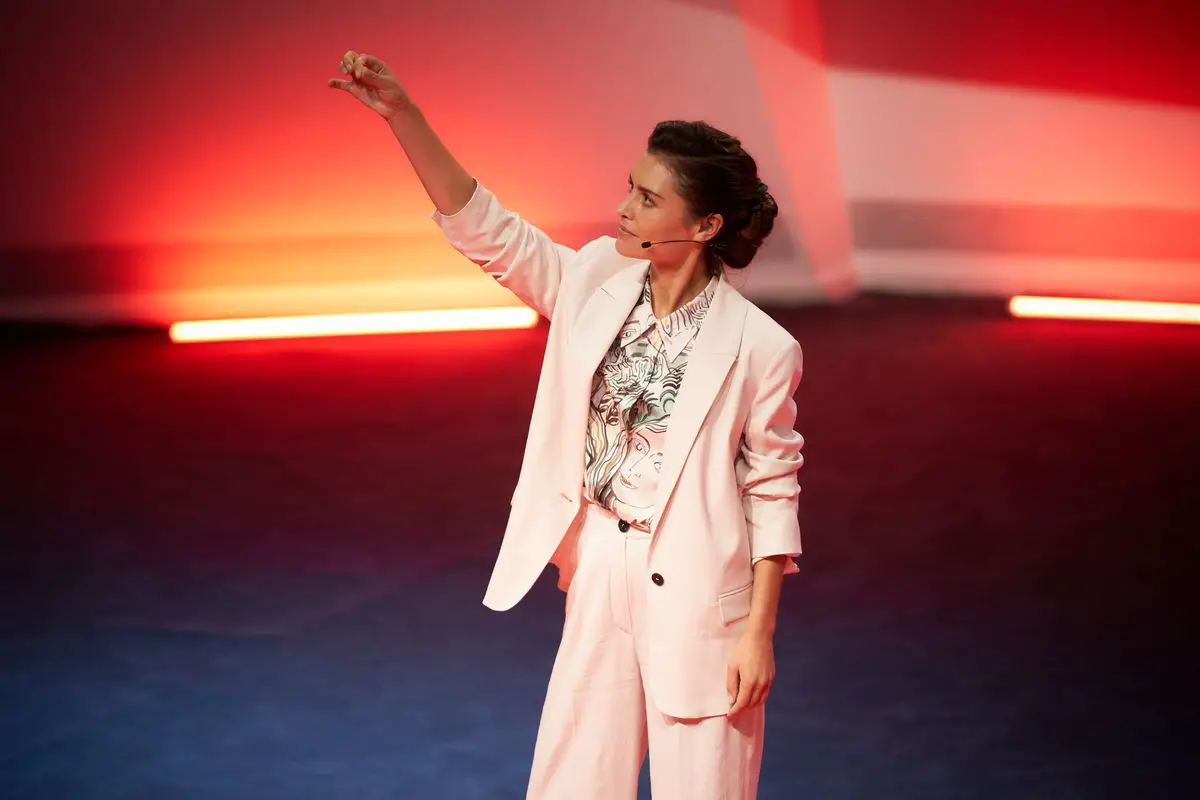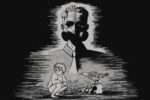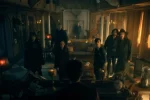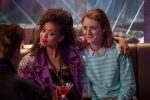Netflix’s “The One” does well what many series set out to do, but end up doing poorly. Its ambitions are not unique; they are reminiscent of “Black Mirror,” where the show attempts to isolate qualities about human nature or society at large by changing one key component of our world. This change is often one feasibly brought about by science, specifically an exaggeration of a technology that already exists. In this case, “The One” exaggerates dating apps — the show’s titular app uses a user’s DNA as input for an algorithm that determines their perfect match. This subject matter is handled well, and demonstrates how media needn’t be original to be compelling. Analysis of why “The One” finds some success despite having not an original bone in its body is sure to illuminate exactly what makes television successful generally.
Simply put, “The One” is serviceable in enough areas to hold the audience’s attention. These areas include plot, acting, framing and other more technical things like lighting. Rather than doing anything particularly innovative with these individual components, “The One” acceptably performs all of them under a slick sheen of topicality. Audiences are willing to overlook the fundamental banality of a show’s formula if that formula is applied to current anxieties. For instance, while “Black Mirror” did what “The One” does better and was more inventive, “The One” applies the “Black Mirror” formula, in longer form, to the noticeable contemporary preoccupation with dating apps and their consequences. It is this preoccupation that allows viewers to overlook what is essentially a middling show.
Here an important question must be asked: Does the show have anything significant to say? Even shows most average in their execution can have meaningful commentary, and sometimes this commentary is what elevates them from average to excellent. Its allure, too, is more resilient than that of topicality, as the public’s whims are ephemeral at best, and to rely on the topicality of a certain issue for your show’s success is to set it up for rapid obsolescence.
On this front, “The One” is difficult to pin down. How much of its commentary’s quality can be attributed to its own ingenuity? It can be easily argued that much of what it has to say has been imported straight from series like “Black Mirror,” and that it is unfair to give “The One” credit for something it did not create. While these criticisms are valid, it is important to note that the show’s longer format allows for more exploration of its unoriginal themes; yes, “Black Mirror” led with a triple, but “The One” brought it home with a single. Finishing — or at least fleshing out — the commentary of other media is still laudable even though not all the credit can be given to that production for its end-product.
But this begs yet another question, this one concerned with whether or not it is art’s job to be original at all. It would be unfair to judge “The One” on its lack of originality if that originality weren’t a prerequisite to making good art, so again a question must be answered. Obviously the response must lie somewhere between the two extremes of originality and entertainment — nobody with sense would consider literal plagiarism as good and acceptable art, nor would they consider an extremely original but boring and poorly conceived production to be acceptable either.
A definition favoring originality would condemn “The One” to the infinite wastes of the trite and the uninspired — a definition favoring entertainment, though, would find the show to be more redeeming. After all, seeing what characters do in response to genuinely difficult situations is intriguing. What is someone meant to do, for example, when they find that the true, biologically determined love of their life is married? What sacrifices ought to be made in the pursuit of people pre-determined to be perfect? Observing the different ways in which characters in “The One” squirm around and through these impossible questions is genuinely interesting, and most reasonable viewers would say it deserves some kind of recognition.
Whether one’s chosen definition of good art emphasizes originality or entertainment value, there is one thing that undoubtedly hampers “The One” and its ability to engage the audience. The characters’ squirming under the pressure of interesting questions is well done, but there are simply too many characters and plot lines to keep up with. There are two factors at play when discussing how many characters and plot lines are manageable: complexity and recognizability. If all the characters in some piece of media are extremely recognizable and easily differentiated from one another, and their individual stories are easy to grasp and retain, the number of manageable characters can balloon without losing the audience’s interest.
However, if it is difficult to distinguish between the motives and traits of the characters, and those characters are each involved in complex plots, the audience can only keep up with a few before losing track of the story’s progression. “The One” finds the wrong balance here; while the individual storylines aren’t terribly complex, the number of characters given significant screen time is high, and these characters lack differentiating features. This is by no means a dealbreaker, but if the writing had been improved by consolidating or truncating some of the storylines present, “The One” would be better overall.
Despite these flaws and its general lack of originality, “The One” manages to preserve and extend the commentary that made its “Black Mirror”-esque predecessors interesting. Its visual storytelling is generally inoffensive — the camerawork is acceptably dynamic, the plot is at least consistent and the acting is fine. “The One” will not make you upset beyond words or bored out of your mind, nor will it change your perspective in any meaningful way. It is cotton candy; it is mildly pleasant to experience for the time in which it is present and promptly vanishes after it comes to a close.
Some would consider this to be an unimaginable failure, as to leave no impression is infinitely worse than leaving a bad one. For me, though, television like “The One” is great for low-stakes Saturday-night binging when I don’t want to get caught up in anything too serious. Its failures and triumphs do raise interesting questions, questions far more interesting than anything the show has to offer, and it is in these considerations that the true value of “The One” lies.

















